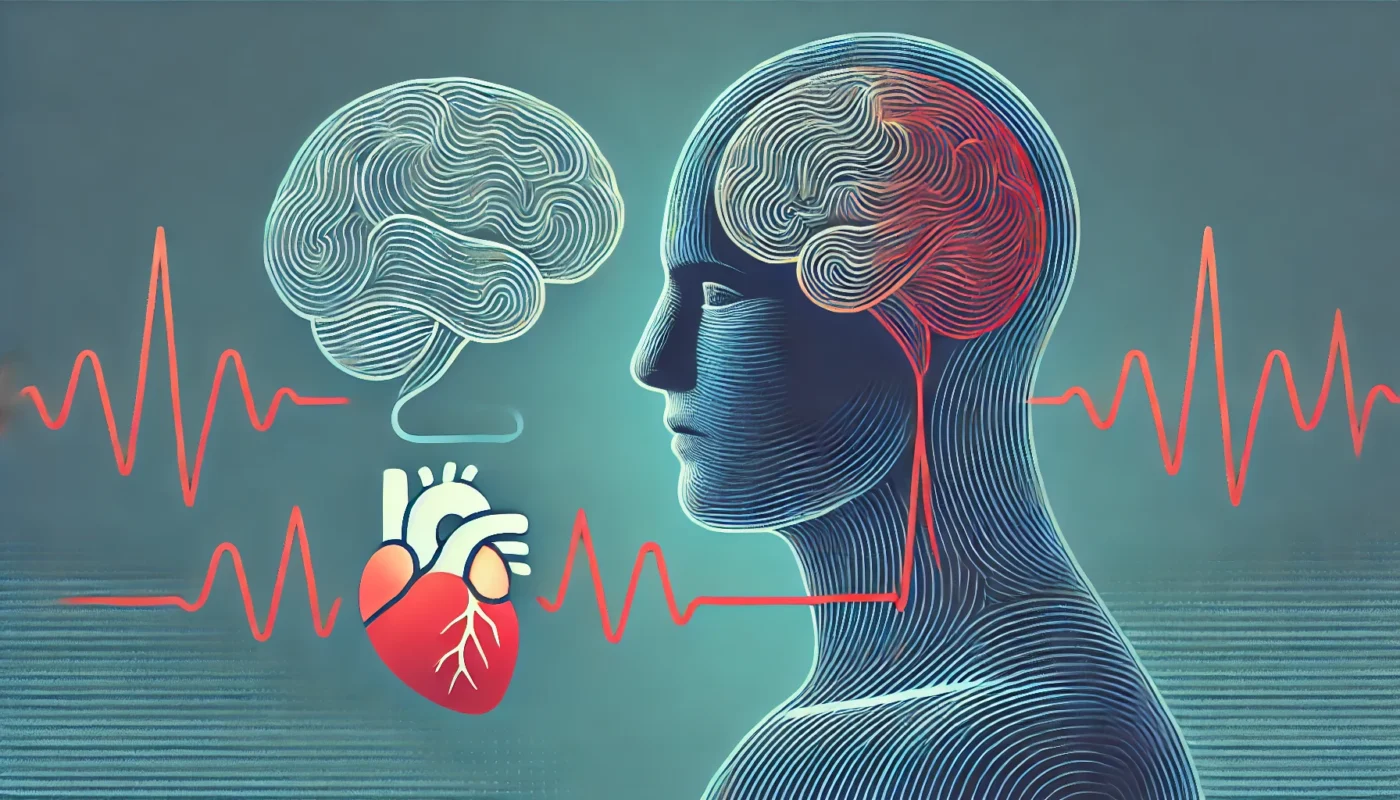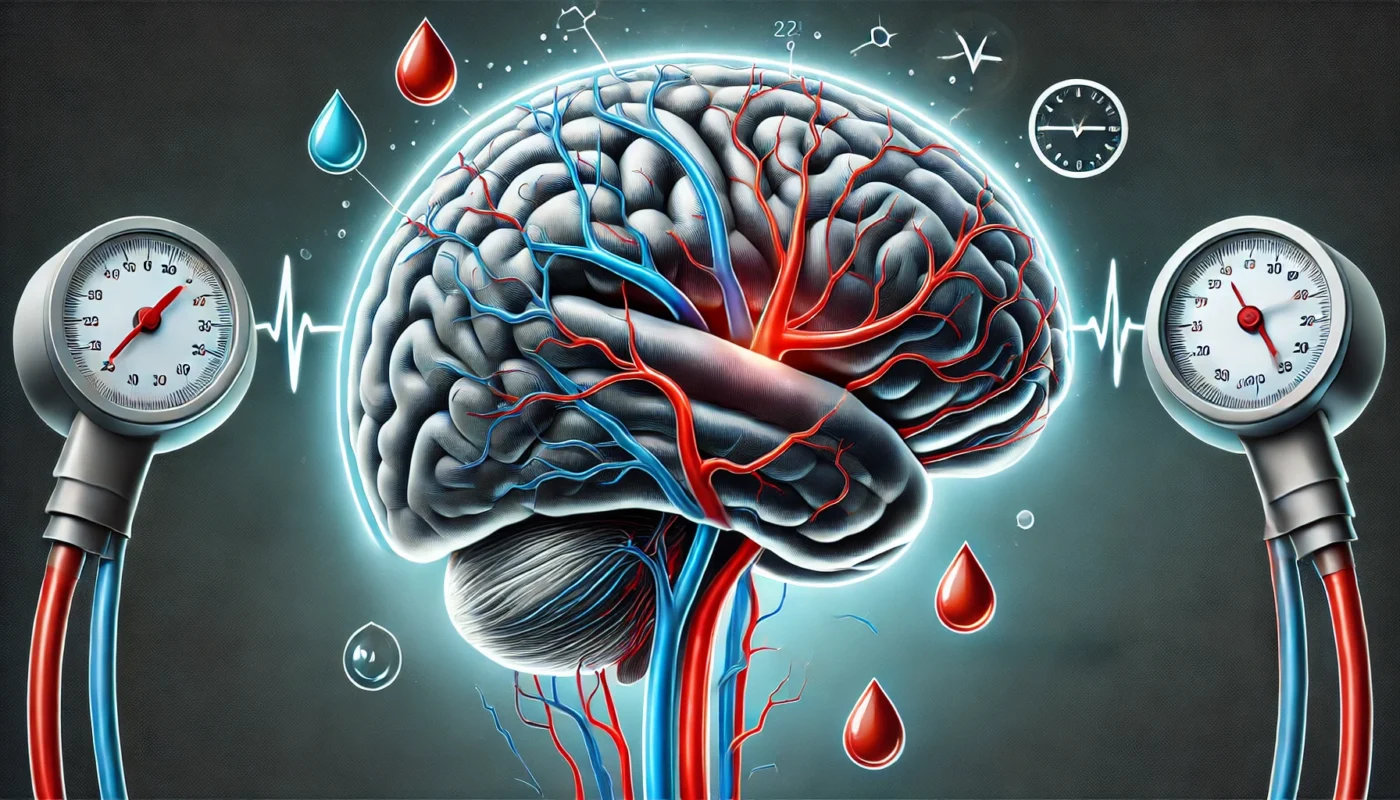Hypertension, or high blood pressure, affects nearly half of the global adult population, according to the World Health Organization (WHO). While it is widely known as a leading cause of heart disease, stroke, and kidney failure, its connection to mental health often remains underexplored. Emerging research highlights a bidirectional relationship between hypertension and psychological well-being, where high blood pressure influences mental health, and mental health challenges, in turn, exacerbate hypertension. This article explores the hidden impact of hypertension on mental health, the underlying mechanisms driving this relationship, and strategies to manage both conditions effectively.
You May Also Like: The Impact of Hypertension on Cognitive Function: What to Watch For
Understanding the Bidirectional Relationship Between Hypertension and Mental Health
Hypertension’s Impact on Mental Health
Hypertension is not just a physical condition; it has profound psychological implications. The chronic stress of managing a long-term illness can lead to mental health disorders such as anxiety and depression. Additionally, the physiological changes associated with high blood pressure can directly affect brain function and emotional regulation.
- Evidence: A study published in Hypertension Research (2018) reported that individuals with hypertension were 30% more likely to develop depressive symptoms compared to those with normal blood pressure levels. This correlation remained strong even after adjusting for other health factors.
Mental Health Disorders as a Risk Factor for Hypertension
Conversely, psychological conditions like anxiety, depression, and chronic stress are recognized contributors to the development of hypertension. These mental health challenges trigger a sustained activation of the stress response, leading to hormonal imbalances and increased blood pressure over time.
- Evidence: A meta-analysis in The Journal of Psychosomatic Research (2020) found that individuals with chronic anxiety were 1.5 times more likely to develop hypertension compared to the general population.

Mechanisms Linking Hypertension and Mental Health
The bidirectional relationship between hypertension and mental health is driven by complex physiological and behavioral mechanisms:
1. Chronic Stress and the HPA Axis
The hypothalamic-pituitary-adrenal (HPA) axis plays a central role in the body’s response to stress. Chronic stress causes dysregulation of the HPA axis, leading to excessive secretion of cortisol and adrenaline. These hormones contribute to persistent vasoconstriction and increased blood pressure.
- Impact on Mental Health: Elevated cortisol levels also impair mood regulation, contributing to anxiety and depression.
2. Cerebrovascular Changes and Brain Health
Hypertension damages blood vessels in the brain, leading to reduced blood flow and the development of white matter lesions. These changes are associated with cognitive decline and mood disorders.
- Evidence: A study in The Journal of Neurology (2019) showed that hypertensive patients with white matter lesions were twice as likely to experience depressive symptoms compared to those without vascular damage.
3. Lifestyle Factors and Coping Mechanisms
Unhealthy coping mechanisms, such as overeating, smoking, or alcohol consumption, are common among individuals struggling with mental health challenges. These behaviors increase the risk of hypertension and worsen existing high blood pressure.
The Hidden Psychological Burden of Hypertension
Living with hypertension often brings psychological stress, stemming from the need for constant monitoring, fear of complications, and potential lifestyle changes. This burden can lead to feelings of frustration, helplessness, and isolation.
Hypertension and Anxiety
Anxiety is particularly common among individuals with hypertension. The fear of developing serious complications, such as a heart attack or stroke, can create a feedback loop where anxiety worsens blood pressure and vice versa.
Hypertension and Depression
Depression in hypertensive patients is linked to both the psychological impact of managing a chronic condition and the physiological effects of reduced blood flow and inflammation on brain function.

Strategies for Managing Hypertension and Mental Health Together
Effectively addressing the intertwined nature of hypertension and mental health requires a comprehensive approach that targets both conditions simultaneously. Below are evidence-based strategies for managing these challenges.
1. Lifestyle Modifications
Lifestyle changes benefit both blood pressure and mental health by addressing root causes and promoting overall well-being.
- Exercise: Regular aerobic exercise reduces blood pressure and alleviates symptoms of anxiety and depression. A study in The American Journal of Preventive Medicine (2020) found that exercising for 30 minutes, five times a week, reduced systolic blood pressure by 7 mmHg and significantly improved mood.
- Dietary Changes: Following the DASH (Dietary Approaches to Stop Hypertension) diet, which emphasizes fruits, vegetables, whole grains, and low-fat dairy, supports cardiovascular and mental health.
- Stress Management: Practices such as yoga, mindfulness meditation, and deep breathing exercises lower cortisol levels and reduce blood pressure.
2. Psychological Interventions
Targeted psychological therapies can help individuals manage the mental health burden of hypertension.
- Cognitive Behavioral Therapy (CBT): CBT is effective in reducing both anxiety and depression in hypertensive patients. It helps individuals identify and reframe negative thought patterns that exacerbate stress and high blood pressure.
- Biofeedback: This technique teaches individuals to control physiological processes, such as heart rate and blood pressure, through relaxation and mental focus.
3. Pharmacological Treatments
Medications can address both hypertension and coexisting mental health conditions.
- Antihypertensive Medications: Beta-blockers and ACE inhibitors not only lower blood pressure but may also have calming effects that reduce anxiety.
- Antidepressants: Selective serotonin reuptake inhibitors (SSRIs) are commonly prescribed to treat depression in hypertensive patients, as they have minimal effects on blood pressure.

The Role of Nutritional Supplements in Hypertension and Mental Health Management
Incorporating nutritional supplements into a hypertension management plan can support both blood pressure regulation and mental well-being. Below are five evidence-based supplements:
1. Ashwagandha
Ashwagandha is an adaptogen that helps the body manage stress and reduce cortisol levels. A study in The Journal of Alternative and Complementary Medicine (2020) found that ashwagandha reduced anxiety scores in participants by 44% over eight weeks.
2. Hibiscus Extract
Hibiscus promotes nitric oxide production, enhancing blood flow to the brain and reducing blood pressure. Research in The Journal of Nutrition (2010) showed that hibiscus tea reduced systolic blood pressure by 6 mmHg in prehypertensive adults.
3. Magnesium Glycinate
Magnesium relaxes blood vessels and reduces vascular resistance, while also alleviating symptoms of anxiety and depression. A study in Magnesium Research (2016) found that magnesium supplementation reduced systolic blood pressure by 5 mmHg and improved mood in individuals with mild anxiety.
4. Omega-3 Fatty Acids
Omega-3s improve endothelial function and reduce inflammation, benefiting both cardiovascular and brain health. A meta-analysis in Hypertension (2018) reported reductions in systolic blood pressure by 4 mmHg and improvements in mood with omega-3 supplementation.
5. Coenzyme Q10 (CoQ10)
CoQ10 reduces oxidative stress and supports energy production in cells, which can improve both vascular and mental health. A clinical trial in Hypertension Research (2007) demonstrated that CoQ10 supplementation lowered systolic blood pressure by 11 mmHg and reduced fatigue and mood disturbances.
Breaking the Cycle: Integrative Care Models
To effectively manage the interplay between hypertension and mental health, integrative care models that combine physical and psychological interventions are essential.
Collaborative Care Teams
Collaborative care involves coordination between primary care physicians, cardiologists, and mental health professionals to provide comprehensive treatment plans.
Digital Health Tools
Wearable devices and apps that monitor blood pressure and stress levels in real time empower individuals to take control of their health and identify triggers for both hypertension and mental health challenges.

Conclusion
The connection between hypertension and mental health is a complex but critical aspect of overall health. High blood pressure not only increases the risk of physical complications but also affects psychological well-being, creating a bidirectional relationship that requires integrated care. By addressing both conditions through lifestyle changes, psychological interventions, pharmacological treatments, and nutritional support, individuals can break the cycle and achieve better health outcomes. Recognizing the hidden impact of hypertension on mental health is the first step toward holistic management, ensuring both the body and mind are cared for effectively.
References
- Hypertension Research. (2018). The link between hypertension and depression. Hypertension Research. Retrieved from https://www.nature.com/hr
- The Journal of Neurology. (2019). White matter lesions in hypertensive patients and their cognitive impact. The Journal of Neurology. Retrieved from https://link.springer.com
- The American Journal of Preventive Medicine. (2020). Exercise and its effects on blood pressure and mental health. The American Journal of Preventive Medicine. Retrieved from https://www.ajpm.org
- Magnesium Research. (2016). Magnesium supplementation in blood pressure and mood regulation. Magnesium Research. Retrieved from https://www.springer.com
- The Journal of Nutrition. (2010). Hibiscus tea and its cardiovascular benefits. The Journal of Nutrition. Retrieved from https://academic.oup.com
Key TERMS for this article:
Hypertension, Mental Health, Chronic Stress, Depression, Anxiety, Blood Pressure Management, Nutritional Supplements
Relevant and useful TAGS for this article:
Hypertension, Mental Health, Blood Pressure, Anxiety, Depression, Stress Management, Cardiovascular Health, Chronic Disease, Holistic Health, Nutritional Support
Important Note: The information contained in this article is for general informational purposes only, and should not be construed as health or medical advice, nor is it intended to diagnose, prevent, treat, or cure any disease or health condition. Before embarking on any diet, fitness regimen, or program of nutritional supplementation, it is advisable to consult your healthcare professional in order to determine its safety and probable efficacy in terms of your individual state of health.
Regarding Nutritional Supplements Or Other Non-Prescription Health Products: If any nutritional supplements or other non-prescription health products are mentioned in the foregoing article, any claims or statements made about them have not been evaluated by the U.S. Food and Drug Administration, and such nutritional supplements or other health products are not intended to diagnose, treat, cure, or prevent any disease.

